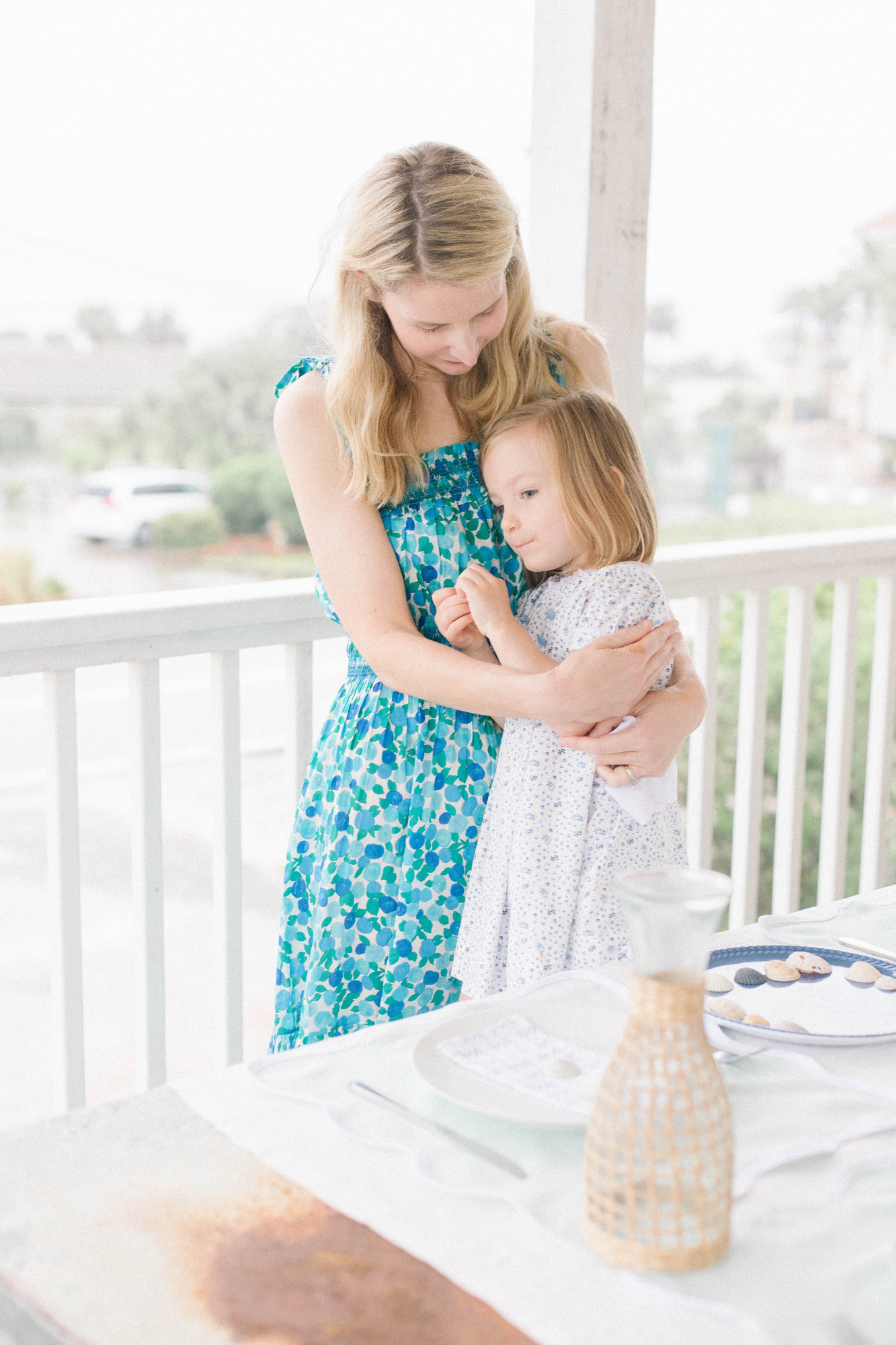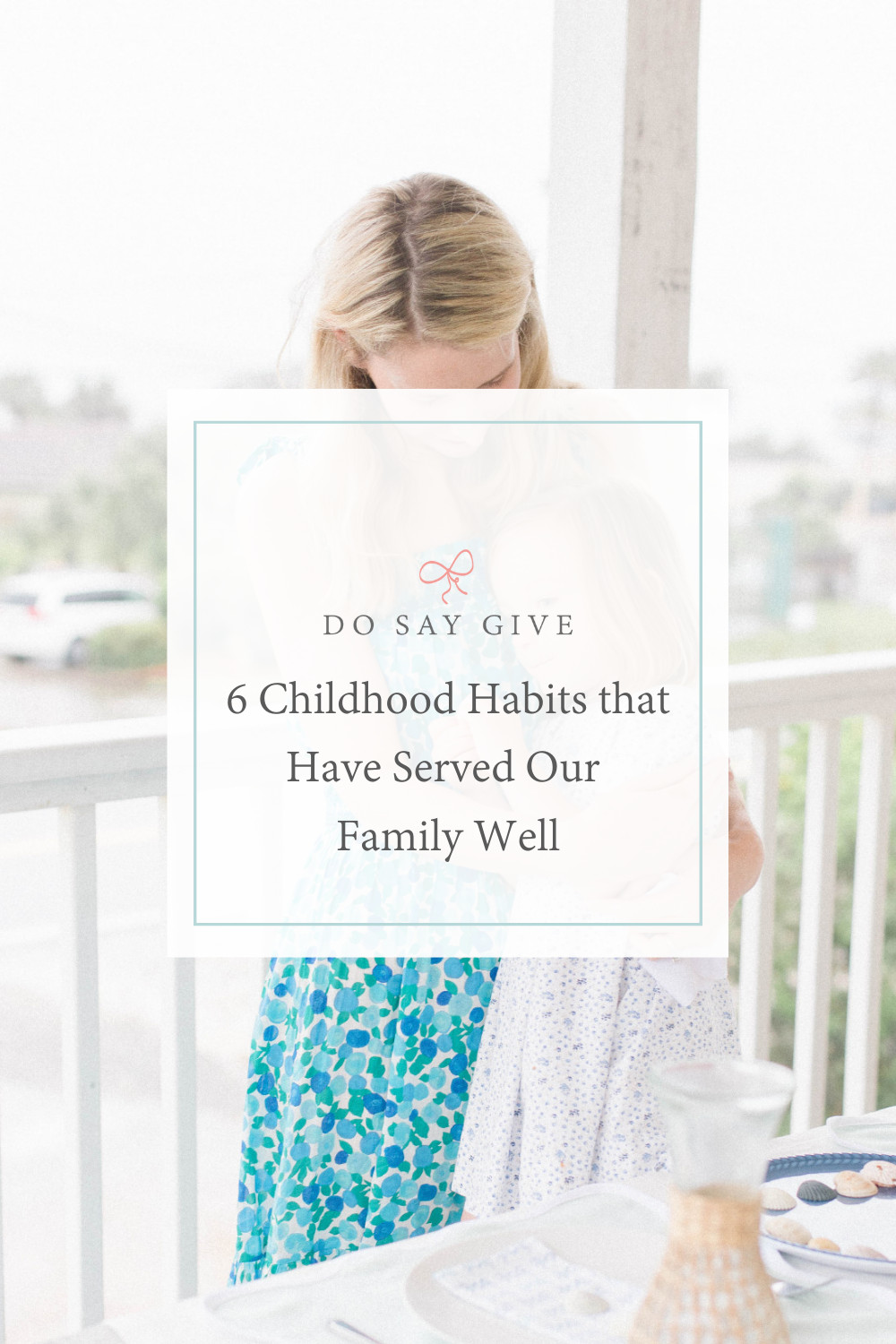I’m often asked what one piece of advice I’d give to other mothers, or those who find themselves entering into the season of motherhood for the first time. It’s such a tricky question to answer, honestly, because every family is different and has a unique situation. But what I do come back to time and time again is the idea of habits — forming habits for your family that will help your children form strength of character and life-long virtues. There are so many books and blogs and articles that point to the many benefits of forming good habits (the earlier the better, they say), and as anyone who has tried to either form or break a habit as an adult knows, that forming can seem monotonous at times. Especially if you throw children into the mix. But, I can tell you from my own experience, the fruit is to come — and it certainly does!
There is so much wisdom in instilling good habits in your children – so many benefits for children, of course. But I have found that these habits make our home run a bit smoother. Smoother, not smooth — it’s important to note! But in a world where motherhood has become so complicated, these simple habits have served our family well.
Just like adults, children need lots of reminders and grace as they go. Everything from vacations to a slight disruption in our schedule can be enough to get out of a habit, so know that it’s okay to start over and reset. As mothers, we’re the ones who set the tone and the pace — the influence in our children’s lives during this oh-so-short season of childhood. So let’s use it for good!
6 Habits that Have Served My Family Well
1. Early Bedtimes
Research has consistently proven that an early bedtime for children helps their physical, emotional, and cognitive development. Earlier bedtimes allow deeper restorative sleep, which is wonderful for those ever-growing, ever-exploring brains! Not only that, but going to bed early helps set a routine — and routines are so good for children. They know what to expect every night, so meltdowns are reduced and battles about going to sleep are less likely. Plus, early bedtimes for younger children give parents time to regroup and spend time together as adults. A mental break, of sorts! Now that I have a teenager, the days are much longer and I find myself remembering those younger days fondly.
2. First time Listening
Don’t let this phrase scare you. “First time obedience” doesn’t imply you’ll have little robots — they’re children, after all! Grace abounds in our house, but we do have clear parent-child relationships. From an early age, we used phrases like “first time listening” to help remind my girls how important it is to listen. Learning to honor mom and dad means listening to them and obeying them. (It also is good practice for listening to their teacher one day when it’s time to learn.) Much of the time there is a safety reason for that, but sometimes it’s to develop character, too. There was a popular parenting method when I had my first daughter that was all about reasoning with your children when they didn’t want to do what was asked of them. But I discovered (rather quickly!) that you cannot stop and reason with your child every time they don’t want to listen (which is often). It’s important to listen to your child’s feelings and discuss with them the “why” behind your directions, but there is a time and place for that and often it’s not in the moment.
3. Family Chores
My girls have helped with chores starting from a young age. Even with a housekeeper, I want my girls to do chores — they build character, and it also helps them learn what it means to be part of the family. We don’t pay our children for chores, and how we divvy them up evolves with my children’s age and stage at the moment. Making chores habits — like unloading the dishwasher after breakfast, or making their bed in the morning — reduces the protesting when they know to do it every day. And, bonus: It helps mom out!
4. Flexible Routine
Developing a family rhythm is comforting for babies and all the way through the teenage years! Children thrive on routine and knowing what to expect — it helps them feel a sense of comfort and security, no matter their age. But of course, things happen (illness, travel, holidays) so we can’t be too rigid or life will be constantly frustrating. So my family has certain things we do to incorporate routine and rhythm throughout our day. For instance, on Sundays we try not to overdo it with activities and have a big family meal. We have family dinners every night, but sometimes someone is at youth group or my husband is out of town we just have it without them. In the morning, I do a devotional with my girls every day at breakfast. These are little points that help form the rhythm of their day.
5. Daily Outdoor Time
My girls were reminiscing the other night about how every afternoon we used to walk up and down the street, piddling around, collecting acorns, talking to neighbors, etc. I tried to get my girls outside every day when they were younger, even in the backyard or time in our favorite local parks. At one point, we had a “secret” park we used to always explore. Nature has such a wonderful impact on children to spark their curiosity. But time spent outdoors also gets extra energy out (which again, helps parents!). My husband has also made it a priority to take my girls camping, hiking, and canoeing as they get older. These are traditions they’ve come to love, cherish, and look forward to — and in our fast-paced, digital world, I am so thankful for this!
6. Kindness Toward Others
This could be a whole post on its own, but treating others well is a habit that takes practice. It’s easy to fall into a bad habit of snarky words or eye rolls to siblings so we have to really work at making kind habits the norm in our home. I always tell myself that if my girls aren’t treating each other well in our home then I can’t expect them to be treating others well outside the home. Teaching them to love and serve others starts at home! When they were little we spoke often about “putting others first” based on Philippians 2:3-4. We also have a phrase “When someone needs help” and they repeat back “we help them.” Kindness is a habit that we are constantly reminding them about, so don’t be discouraged if you are as well.
There are so many habits that are helpful in childhood, of course, but these are ones that came to mind recently. I hope you find them to be encouraging — and perhaps find them to be helpful with your family, as well! Let me know if you want to hear more in the comments below, as well as what habits you’ve found to be helpful for your family!





Love this so much! I’m going to start the “when someone needs help” response. You always have such gracious, encouraging tips.